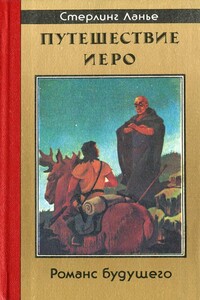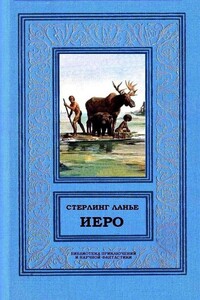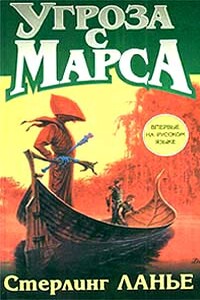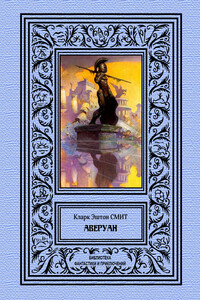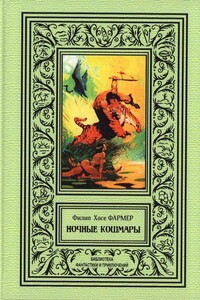Hiero's Journey | страница 60
Keeping a sharp eye out for any stragglers, Hiero and the bear went down and dug up a nest they had previously marked in the moonlight as being in a shallow hole. Gorm gulped down three of the great, golden-yolked things, each an easy hand length in diameter, while Hiero spooned up one himself. But he packed the morse’s saddlebags with eight more, all he could get in and then the group set off again, the bear moving rather more slowly because of his gorged stomach.
As they topped a small rise in the land, Hiero reined up. Ahead of them reared a row of dark hills which shut off the view of the country beyond. Where these mysterious mountains had come from was a puzzle to him, since they ought to have been visible a long way off and yet had not been. He decided to camp on the spot, selecting a handy cleft in a large rock which was partly overhung by vines and bushes. The puzzle of the suddenly appearing hills could wait for dawn, and that was not far away.
As the sun slowly rose, Hiero peered out and started to laugh, in both joy and relief, making the bear look curiously at him. The “mountains” he had seen a few hours before were nothing but a crest of tall sand dunes, and they were no more than a mile away, across a belt of scrub with a few streams trickling through them. He, or they, rather, had conquered the great marsh!
For a long time he lay, the morning sun warm on his tanned brow, and watched the dunes. A short distance beyond them could only lie the Inland Sea. A road led to the extreme western edge of this great body of fresh water, that is, a road from the Metz Republic, far to the northwest. But Hiero knew that he was nowhere near the place where that road reached the brawling port town of Namcush. He must be hundreds of miles further to the east, and what towns if any lay in this part of the sea or on its shores, no one really knew, beyond perhaps some few close-mouthed and suspicious merchants. The men of the merchant guilds sometimes voyaged for thousands of miles, but many of them were pagans with no love for the Abbeys, or the Republic either, or indeed any governing body, save their own loose, mercantile federation. They were not men who gave up information easily, and more than one of them was certain to be allied with, if not an actual servant of, the Unclean. Yet it was necessary to deal with the merchants, and some of them were good men who served as spies and secret messengers for the Abbeys, often earning themselves a horrible death.
